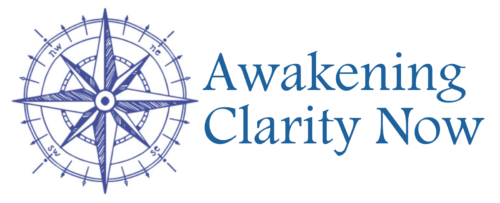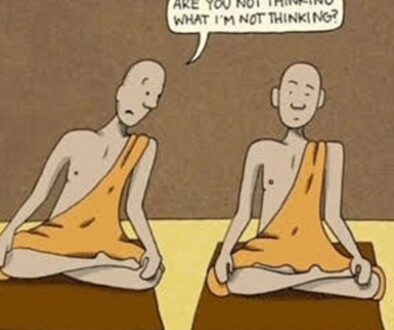First Chapter Preview: You Are No Thing by Randall Friend
 |
You Are No Thing by Randall Friend |
Part 1 – The Search
Bondage is when the mind longs for something, grieves about something, rejects something, holds on to something, is pleased about something or displeased about something.
– Ashtavakra Gita
A Summary of a Spiritual Search
How did Randall ‘get’ this? How did he realize this? How did he do this?
These questions are fundamentally meaningless, because they deal with a ‘someone’ who was never there, someone who never, for one moment, existed. They refer to a story and have nothing at all to do with finding out what you are.
They deal with a dream character, a fiction. They tell a story about ‘getting’ something, which is very clearly not the case. Nothing was seen, nothing was attained, nothing was achieved, nothing was added, nothing was changed.
It is simply a clear recognition of That which was already the case, already present, already fully and completely attained, which is to say that nothing at all was attained. It was clearly seen that the identification with Randall was an illusion, a mistaken identity, a belief in a dream.
The unmistakable truth about enlightenment is that there is no one there. There is no one who gets it, no one who could become it, no one who could ever reach it, find it, stumble upon it, realize it, attain it. There is no one there to be bathed in the light of God.
What you are is beyond even any idea of enlightenment.
This story isn’t about someone gaining enlightenment or liberation. It’s a story about the realization that there never was anyone, never was a person; not for one moment was there ever a Randall who was seeking or who could ever become enlightened.
Yet if this story points out the bumps in the road, if it resonates with familiarity, if it helps to weed out the contradictory myth of specialness, then it is appropriate.
∞
Once upon a time, ‘Randall’ was born into Christianity, dragged along to Sunday services and Vacation Bible School. It was the typical Christian upbringing, sipping and nibbling on the sacraments because lunch had been delayed, playing in the holy water, dreaming of sailboats and seagulls, wondering why everyone was so serious and uncomfortable in their Sunday best.
Yet this system of beliefs expected adherence, demanded faith, to the extent that anyone not exposed to its unquestionable truth was surely to burn in everlasting hell. To a young mind, this didn’t make much sense.
At the time, alternative religions were seeping into the culture, hidden amongst the other taboos like his father’s dirty magazines and stashed cans of beer. Meditation was also surfacing into public awareness, yet it originated from a foreign and far away place, the domain of the Devil and pot smokers, and definitely something a good Christian boy didn’t want to take part in.
Maybe because of the disillusionment with Christianity, maybe just because it was taboo, Randall researched everything he could about meditation. Yet trying to sit still and still the mind was hard work.
Randall was fascinated by Buddhism, particularly the idea that a man could reach a state of enlightenment through meditation. Randall’s young and fertile mind somehow equated this state with God
Many, many years seemed to pass; Randall found Buddhism a constant reading buddy, a way to take his mind off constant pressures and stress, an outlet for the suffering of a failed marriage and financial hardship.
Yet through these years, he had no real understanding, nothing came of it. Meditation was only a fascination, a way to calm down.
Randall’s spiritual search continued, although it was little more than a bathing in alien words, reading a language which was not understood, pondering paradox with a keen intellect.
He explored many traditions: Zen, Taoism, Dzogchen. The idea that this was non-duality never once came to mind. Then Advaita Vedanta appeared.
Sri Nisargadatta Maharaj gave the first taste of Advaita Vedanta. Reading his book wasn’t the typical spiritual fare, not the soft and fluffy new age hugs and flowers type of banter. Nisargadatta’s message was like slamming your head into a brick wall as hard as you can. And once you got up, bleeding and semi-conscious, slamming it again and again.
All the trinkets and toys of the generic spiritual practice were shaken loose, called into question. The root of the great spiritual search was clearly, yet somehow obscenely, uncovered in all its glory and shame.
The Great Spiritual Search was really about becoming something different, something better. It was clearly understood that the lifetime of seeking was looking to the future, seeking a change, searching for something special.
This once-young man found that the internet had become a reality, a far cry from the little available information on foreign philosophies from the library, or magazine subscriptions. Now Randall found ‘Sailor’ Bob Adamson and Gilbert Schultz available and present in cyberspace.
Randall exchanged emails with Gilbert, mostly with Randall expounding his vast intellectual abilities and skill at discernment. Gilbert repeatedly rejected even the most logical arguments with one recurring, uncompromising and annoying theme: ‘Seeing is happening.’
Randall called on ‘Sailor’ Bob Adamson and found that Bob was as dear and kind as any human ever encountered. His message was clear: ‘What you are seeking, you already are. You are no thing.’
After months of conversation with Gilbert and calls to Bob, Randall echoed many of the typical discourses of seeking. He had a clear intellectual understanding, but just wasn’t there yet, hadn’t seen This, was still missing a piece of the puzzle, needed something else. Then Randall found a talk by Bob on Gilbert’s website:
‘Well “knowing” is what I call intelligence. Not your intellect. Intelligence. That is the activity of knowing – intelligence energy. Knowing is an activity – of something that is going on in the immediacy of the moment. Any activity is a movement of energy. Not the content of knowing, I know this or I know that, that is all acquired, all conceptualized, all word stuff. The basic activity of knowing. You are not knowing a moment ago. You are not knowing a moment in the future either. It is going on in the immediacy of the moment, so it’s an activity – something is happening now. It is this energy or life force or whatever label you want to put on it. It is functioning there in the immediacy of the moment. That is what you are.’
Something seemed to happen, fall apart, fall away. Nothing actually happened yet the identification as Randall was seen very clearly as false. The identification with the body-mind was seen to be a false assumption.
The belief in a person, a separate entity, a me bound and imprisoned in a body-mind was clearly recognized as merely belief, seen without the clouded filter of assumptions. The recognition was an opening, an allowing of truth to shine through. The overlay of belief fell apart in openness.
That clear, always and ever-present presence of knowing was recognized, realized to have always been there, noticed to be what I am and had always been.
Yes, seeing is happening. Without exception.
I really am no thing; not a thing, not an appearance, not the name and form, not a separate part, not a limited being. What-I-am is all of it, all that appears, all that comes and goes, all that arises and the open and spacious space in which it appears.
And in that, it is clear that it was never about achieving anything, never about becoming, never about ‘only an intellectual understanding’, never about ‘almost there’, never ever about ‘I’m not there yet.’ Only ever about recognizing That which was always there.
Recognizing the true nature as no thing.
That very freedom, that liberation, that peace, that love that was being sought, was already attained, always there. It was seemingly hidden but completely in full view, always.
The search was clearly and unmistakably over, not because all the answers were found or figured out but because the seeker, the person, was seen to be false, a fiction, non-existent.
I was no thing. Not a thing, not an appearance. Yet clearly this was already the case and had always been so.
The endless end of a beginningless beginning.
Our World
We have a shared view of the world. This view includes the commonly-held and scientifically proven belief in the big bang. And before that big bang there was apparently pure nothingness, nothing in existence, pure formless void.
Then the big bang happened – boom! Nothingness exploded into something; particles spread into this void, creating space, creating form, slowly spinning, creating gravitational pull, and gathering other particles together to form larger masses, asteroids, planets, suns and galaxies.
In this story of the big bang, the universe and all its content was created. And from those foundational substances all the rest was formed; the elements, compounds and molecules which led to the formation of cells. Eventually life sprang up, some sort of separate existence, the capacity for consciousness and the ability to know our existence.
With the coming of consciousness came the ability to know ourselves, to experience our existence. This means that we know that we are. Yet it seems that a false assumption has been made so that the story of creation is somehow backwards.
How can the universe, which wasn’t originally endowed with the quality of knowing itself, suddenly create within itself, out of all these parts, the ability to look, to see? How can consciousness, a piece of the universe, suddenly be gifted with the ability to look up and know its origin, when that very universe has no ability to know?
That universe itself, which forms its parts from the whole, the totality of itself, must have the ability inherently to know its own creation, must contain this background of knowing for it to impart that to its creation.
That knowing of our existence hasn’t sprung into being billions of years after the creation; that knowing is an inherent quality of the universe itself.
The universe is this very consciousness.
It seems that consciousness has a wonderful imagination.
∞
From this story we have our common view. We agree to believe it. We have no way of knowing for sure, outside of science’s explanations and continual effort to prove that theory, to prove the truth of the story.
And here we live, on this planet, formed from the remnants of that booming beginning, springing up in different life forms, wandering in a world of separate beings.
And as a separate being, we’re known as a person, a someone who somehow exists in this body, a finite existence, which itself was formed from the very elements of this original boom.
If we happen to be born into Christianity we are told that our essence is soul and that God caused this big bang or created the world for us, as separate beings, apart from Him yet created in His image. Our goal is to reach Him, to be like Him, so that we may, after the death of the body, be with Him, go to heaven, live in everlasting peace and paradise.
If we don’t live up to the morals and regulations set down in this religion, we are doomed to hell, a place or condition which is so hideous, so awful, that we are totally scared into conforming, frightened into behavior of which God approves.
Here is this person, doing its best to live the right way, yet somehow not sure what exactly that means. We’re not sure exactly what lies on the other side of death. We’re constantly scared because we never really know if we’re doing it right.
Yet this story holds a pointer to truth. It’s the story of an original essence, a God, which has been seemingly broken up for the world to appear. It is a nothingness, a no-thing-ness, a void or original emptiness, out of which an explosion happened and then the appearance of the world was formed from various parts and pieces.
We might say that God or oneness had to be the same essence, had to be present, at that moment of universal conception. Whatever God or oneness is, whatever truth or reality is, it must have also been there for that event, long ago.
The common belief is that God is sitting outside of this creation, this universal space, this infinite playground; that He is somehow apart from, yet controlling every aspect, with power over all, seeing all, knowing all, omnipotent, omniscient and omnipresent.
It seems we conveniently ignore the omnipresent part.
Advaita Vedanta, and most religions (if we boil out the political and self-serving impurities added both in scripture and culture), point out that God is not somewhere outside, sitting on some golden throne, writing down each and every deed to be judged in a later day of reckoning.
God is omnipresent, present everywhere, present in everything. God can indeed be seen to be playing the world from inside, as the world, the very suchness or is-ness of the universe itself.
God is omnipotent, the very power or energy or activity of this world, this appearance, this universal substance. God or oneness or the Self is the very movement of the atom, the electron, the spinning of the planets, the pull of gravitation, the nuclear fields of the body, the DNA manifesting like the tree in the acorn.
God is omniscient, all knowing. The universe itself is suffused with the capacity to know itself, look at itself, appear to itself, through a million billion points of reference. Relativity is only an aspect of the absolute, only a seeing of itself like light broken up in a prism.
∞
Without the distractions of thought, without the distractions of body, without the distractions of planets and stars and pieces of this and that which came out of pure nothing, formed from emptiness; without these distractions we have an utter simplicity, an infinite potentiality of creation, of forms, of bodies and thoughts. An emptiness so full of potentiality that it burst in explosion with form, exploding an entire universe into being.
Whatever truth or reality is, it must have been there, before that big bang, the very essence of that boom, the very container and content of that original conception of the world we see and know and take to be made up of separate parts.
That very truth or reality must be here and now, must be the essence of what appears to be. That essence, that is-ness, that intelligence energy or formless void of infinite fullness, that must be the very essence of that body-mind that we’ve identified with.
Yet in identifying as a small, relative piece of this totality, of this infinite void of fullness, by identifying as a separate person, we’ve overlooked our infinite and eternal presence as the totality itself, as spaceless space, as formless form.
We’ve created a little character and a world to play in.
We couldn’t have imagined a more believable story.
What Tools Do We Have?
Within this story, the tools we are given are this mind and this body. These tools are the only thing we have; nothing else is inherently ours. We can buy a shirt or shoes, a watch or a pair of glasses, but this body-mind, naked and without any attachments, is what we’ve been given.
And this body seems to be imperfect, constantly excreting waste or mucus, never quite conforming to our ideal of what it should be.
The body experiences menstruation, puberty, high cholesterol, blood pressure that is too low or too high, gains too much weight or is too skinny. It has beautiful hair and that hair turns grey and starts falling out. The skin is either too oily or too dry, so we must either moisturize or use acne medicine. The feet and the back ache, the prostate flares up, and migraines sometimes make it difficult to think clearly.
Oh, how we wish we had the body of an athlete or a professional dancer! Oh how we wish we had the health or beauty of an actor or an Olympian! The body is subjected to diets, cheap makeup, hair coloring or teeth whitening, all in a vain attempt to first of all make it presentable and hide the aging process, and to somehow prolong the lifespan.
Yet the body won’t cooperate. The heart and arteries get full of the remnants of our poor diet, so that the heart has to work and work just to pump blood to the organs. That brain sometimes has deficiencies which cause all sorts of problems from headaches to psychoses.
And no matter what the body weighs, it’s never right. It’s too fat or too skinny. We buy up all the weight loss and exercise machines we can afford to literally work our asses off. The world requires us to fit into a nice picture of health and appearance, so when that pair of jeans starts to get snug, we are immediately thrown into panic, racing to the gym for three hours of working-out, immediately engaging in a crash diet or pure fasting, in order to fend off the impending obesity which we so dread.
Of course cells constantly die off, leaving unsightly dead skin, for which we must run to the salon for a pedicure. And this fact is glossed over, seen as an inconvenience, another problem which demands our attention.
But this cell death is an overlooked reality. Cells die. All of them. The body is nothing but cells – from the hair to the skin to the muscles, the heart and lungs and blood. All of these cells die, many at an alarmingly fast rate.
In fact, the entire body itself has died and replaced itself, through cell regeneration, many times over. The body you see when you look down or look in a mirror, is not the same body you saw yesterday or 5 years ago. It has replaced every single cell after a decade.
Even that original cell at conception, that combination of sperm and ovum, that original me was only a cell. And that cell has been dead for almost as long as you’ve been alive. That original cell was dead almost immediately, replaced and redoubled many times over during the nine months of gestation.
If we are this body, wouldn’t we be found or located in that original cell?
It seems that we died before we were ever born.
∞
Yet the other tool we have been given is not much better. The mind is not always our friend. It is full of stuff that sometimes we’d prefer not to have. Thoughts come and they come and they come. Of course, since it’s we ourselves that are doing it, that sets us right up for self-doubt, a lack of self-confidence and obsessive behaviors.
These thoughts seem to be what we are. They seem to be self-talk: me talking to myself. We are those thoughts, even though we can’t seem to control them, even though they lead to words which sometimes don’t seem to come out right, or contain embarrassing outbursts at just the wrong moment.
And in this mind we have memory. We can recall images of past experiences. We can remember our first date, our college graduation, and many other experiences we’ve had, including the really bad ones.
This mind also has imagination. We dream what the future might hold, creating a picture of what we’d like to happen, what might happen, what we’re afraid might happen.
This back and forth between memory (the past) and imagination (the future) is what we do, most of the time. This pendulum of thought swings wildly, constantly. And this seemingly uncontrollable rollercoaster of mind is our experience of ourselves.
Yet mind is nothing other than a concept, a conceptual container in which we place thoughts, memories, imagination, mental pictures, songs which are heard on the radio and won’t stop repeating.
Mind is only a word we’ve agreed to use to describe this process that is seemingly going on, yet that very word solidifies into a concept of something-that-exists, of something with independent or absolute existence. Something that stands on its own apart from the totality.
The mind is thought of as some thing, some place in the brain, some container in which this little person or soul resides and speaks from, like a radio announcer’s booth.
Mind really means nothing, it’s only a word. What it is used to describe is more the actuality, the experience of thought, the experience of memory, the experience of imagination, the pictures and images and various displays we know of as our mental world.
Yet mind has no substance, no actual existence.
So these are our tools. This is all we’ve been given as we make our entrance into this world, as we go through our life, as we try to make something of ourselves.
It’s quite obvious, for those who might pause long enough to look, that we really have no idea what we are. We have no idea what we’re even made of, or what the body-mind even is.
Yet without any investigation, without once even questioning these readily-available facts about the body, without slowing down long enough to notice, we’re so sure it’s ‘my’ body.
No wonder we suffer.
LINKS
Randall on FB: https://www.facebook.com/randallfriend1



